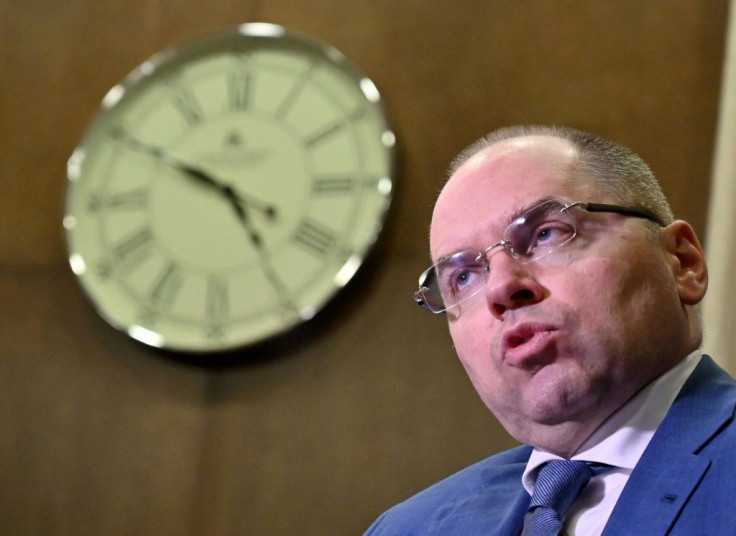AstraZeneca Fears Fuel Vaccine Scepticism In Ukraine
Ukraine's inoculation drive has already been plagued by problems and now faces an alarming new roadblock: vaccine scepticism, fuelled by reports of side effects from AstraZeneca's jab.
Even hospital workers are not immune to the jitters.
"Out of 40 people who initially wanted to be vaccinated, only 10 still do," says Dr Yuriy Shylenko of his colleagues at hospital Number Five in the capital Kiev.
"They want to be vaccinated," he says. "But they want to know what will happen first, and what the result will be."
Ukraine, one of Europe's poorest countries, struggled at first to secure any doses at all for its population of around 40 million, and only launched a vaccination drive in February, far behind its neighbours.

But now that health workers are finally administering jabs, with AstraZeneca the only available vaccine, recent concerns over possible side effects are merging with general anti-vaccination sentiment and further derailing a stunted rollout.
Germany, France, Italy and several other countries have temporarily paused use of AstraZeneca -- developed alongside Oxford University -- over blood clotting fears.
The company and Oxford have both said there is no link between their vaccine and blood clotting.
The EU's medicines regulator also said Tuesday that it remained "firmly convinced" of the benefits of the AstraZeneca jab, while the World Health Organization is due to meet this week to review its safety.
But Ukraine is heavily reliant on its 500,000 doses of AstraZeneca marketed under the name Covishield and produced in India.

Pervasive scepticism in the former Soviet country is now mingling with concerns over AstraZeneca as well as criticism on social media of Covishield for being produced in India rather than the West.
This combination means Ukrainians are rebuffing the chance to be inoculated.
Surgeon Sergiy Svyrydovsky had planned to be vaccinated but changed his mind after hearing about side effects and seeing the international community's response.
"It is not for nothing that seven countries have suspended vaccination," he told AFP.

Health Minister Maksym Stepanov this week said the country had no plans to stop using AstraZeneca but admitted that confidence among doctors had been damaged.
He also told AFP he hoped the impact of "anti-vaccine sentiment and absurd myths" would be short-lived.
Stepanov said 38 percent of doctors treating virus patients have registered to be vaccinated and another 20-30 percent are relying on antibodies for protection.
Ukraine's ageing public health system was put under strain during the pandemic and officials had hoped a vaccine drive would limit a strain on hospitals.
But so far only 62,000 people -- mostly doctors and soldiers -- have been vaccinated, according to government statistics.
Stepanov and President Volodymyr Zelensky last month received coronavirus jabs to encourage more people to get vaccinated.
The government on Tuesday along with the UN hosted a public vaccination of four Christian and Jewish religious leaders, who urged worshippers to follow their example.
"There is no religious reason to refuse vaccination," said Archbishop Svyatoslav Shevchuk, the head of the Ukrainian Greek-Catholic Church.
But reassuring Ukrainians, whose confidence in their government has been battered by a failure to tackle systemic corruption scandals, is not an easy task.
Many people believe celebrities are getting a different vaccine from ordinary people, Shylenko said.
"People have dark things in their heads, mistrust and fear," he told AFP.
But Elmira Mamedova, deputy director of hospital Number Five, said she was heartened by the queue of her colleagues waiting to be inoculated.
After getting vaccinated, the infectious disease specialist says she tells people simply that the jabs are necessary for anyone who wants a normal life again.
"We go to family, to children, to relatives, to friends, we need to communicate, travel -- we need to live," she said.
© Copyright AFP 2024. All rights reserved.





















